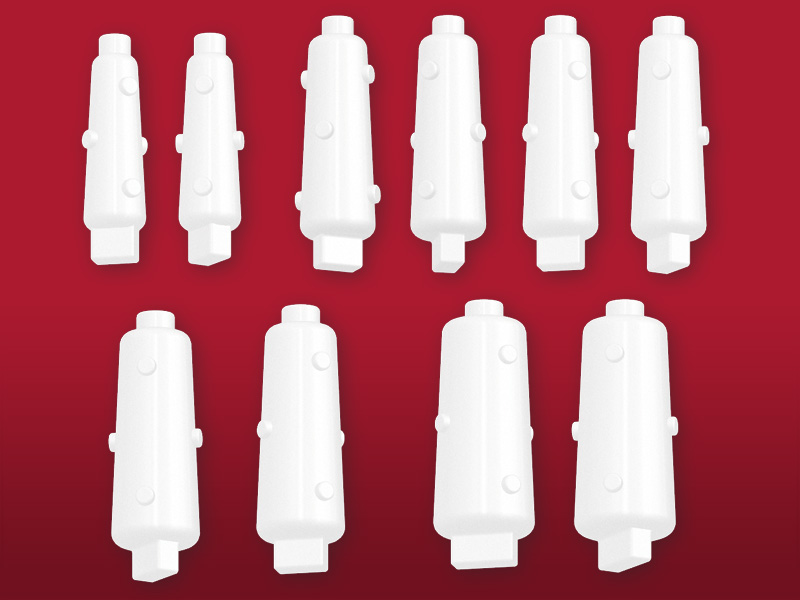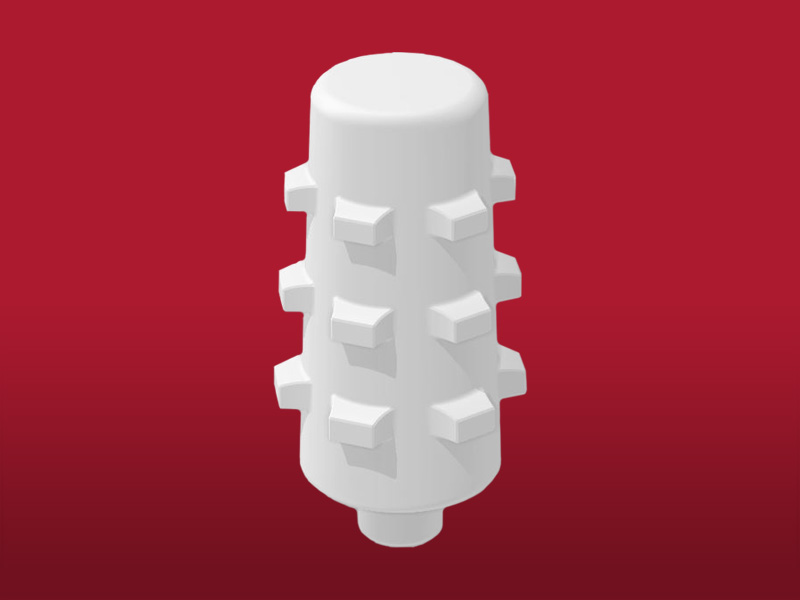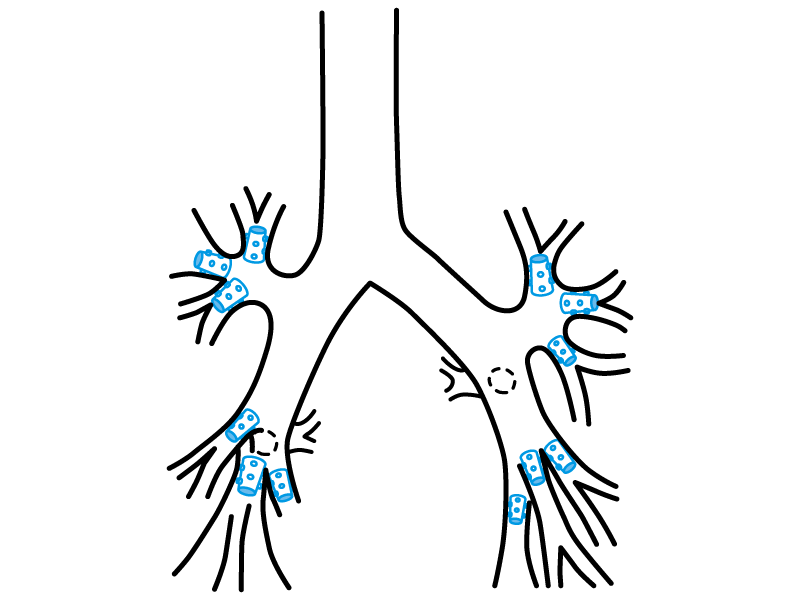Stening® Solid Stent (spigot)
Code MS
Description
Stening® Solid Stent (spigot) made out of silicone and intended for bronchial occlusion in the treatment of different bronchopleural pulmonary affections such as the bronchopleural fistula and persistent air loss in pneumothorax cases that cannot be treated with conventional surgery.
It is radiopaque (white or pale yellow).
Stening® provides detailed instructions for use with each device, including insertion and removal techniques, precautions, and postoperative care.
- Bronchopleural fistula.
- Suture failure in a stump after lobar pulmonary resection.
- Occluded bronchial treatment.
MS10 (spigot)

Presentation: The Stening® Solid Stent MS10 pack, is supplied in a container that has two units of 5 mm of greater diameter, four of 6 mm, two of 7 mm and two of 8 mm.
MS03 (spigot)
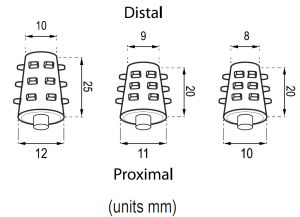
Presentation: The Stening® Solid Stent MS03 pack, is supplied in a container that has three units:
- MS810: 8 mm distal diameter – 10 mm proximal diameter – 20 mm length
- MS911: 9 mm distal diameter – 11 mm proximal diameter – 20 mm length
- MS1012: 10 mm distal diameter – 12 mm proximal diameter – 25 mm length
MS03M (spigot)
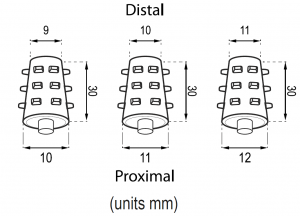
Presentation: The Stening® Solid Stent MS03 medium pack, is supplied in a container that has three units of 30 mm length:
- MS910: 9 mm distal diameter – 10 mm proximal diameter
- MS1011: 10 mm distal diameter – 11 mm proximal diameter
- MS1112: 11 mm distal diameter – 12 mm proximal diameter
MS02 (spigot)
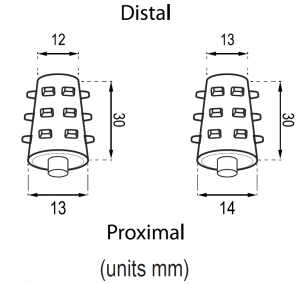
Presentation: The Stening® Solid Stent MS02 pack, is supplied in a container that has two units of 30 mm length:
- MS1213: 12 mm distal diameter – 13 mm proximal diameter
- MS1314: 13 mm distal diameter – 14 mm proximal diameter
- Medical grade silicone
- Bevelled edges to prevent granulomas
- Spur system to prevent migration
- Removable
- Surface of maximum softness to avoid adherence of secretions
The Stening® Solid Stent is implanted with the help of a rigid bronchoscope and it will be required general anaesthesia.
Once the location spot has been determined and its size, which is established by comparison with the known diameter of the endoscopic instruments that are being used, one or a few solid stents with the right measures, that exceed the fistulous hole diameter or the bronchus diameter, will be chosen. This is done in order to adjust the stent to the bronchus or stump where it will be hosted.
The device has a flat appendage at its posterior end from where it will be taken with a rigid alligator forceps.
Then the stent-forceps assembly is introduced through the bronchoscope to lead it to its final destination in the bronchus or fistula that is desired to be occluded by introducing the Stening Solid Stent into the hole.
All the procedure described is carried out under direct vision using the optics for bronchoscopy.
The removal is done effecting inverse manoeuvres.
Due to its radiopaque properties, it can be identified in the radiographies.
- Maintain the moisture of secretions, whenever they appear, by taking nebulisations frequently with a warm isotonic saline solution.
- Perform a periodic check-up following your doctor’s advice.
The product should not be reused because this can cause cross contamination.


